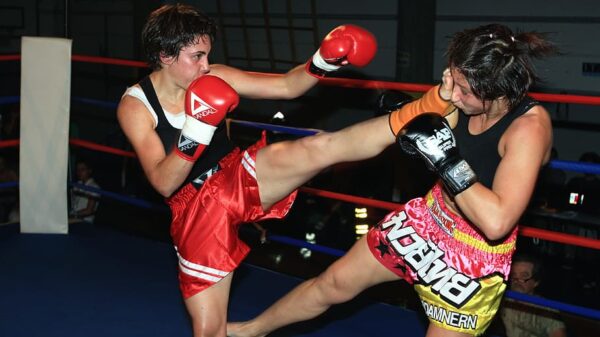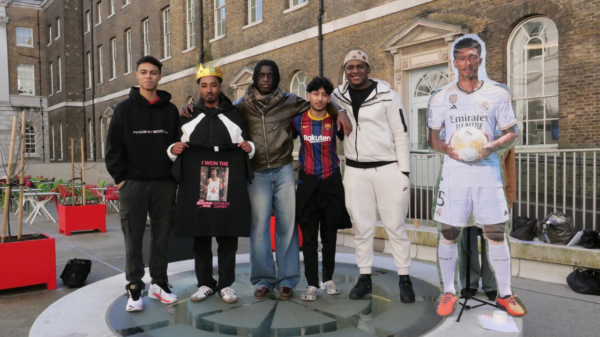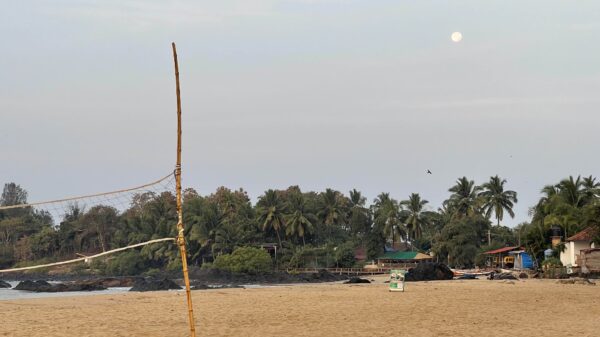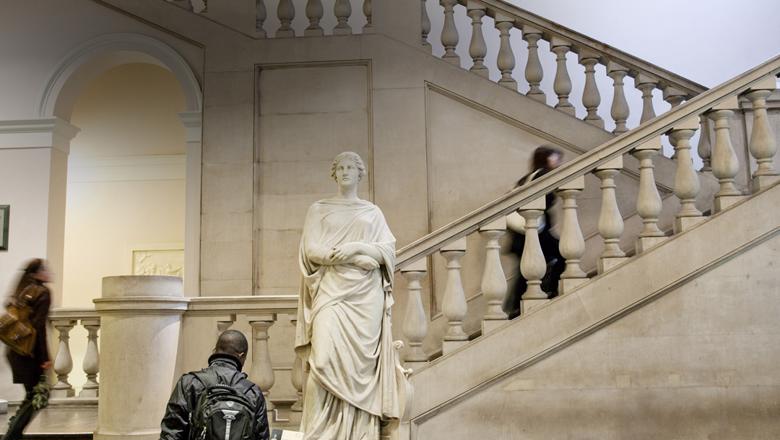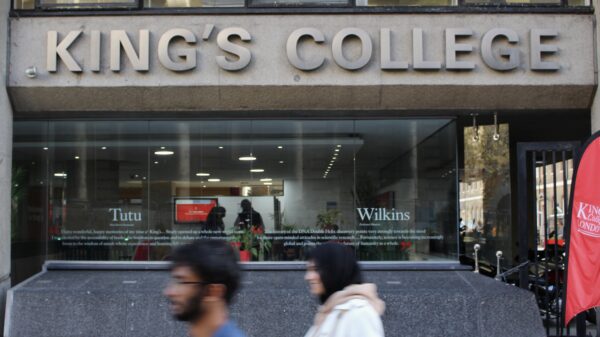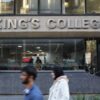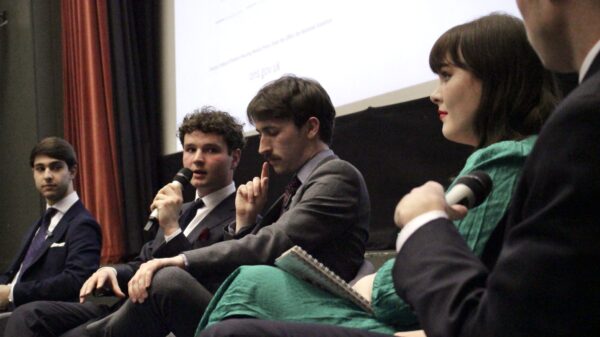On Monday 5 February, King’s College London Conservative Association (KCLCA) President Isaac Farnbank sat down to discuss student politics at King’s and defend his group’s record.
The KCLCA proudly declare that they’re the largest student Conservative society in the country. At the very least, they are one of the most high-profile. King’s College London (KCL) barely goes a year without some Tory Soc scandal – all in all, the KCLCA are the most reliable source of controversy on campus.
In 2020, the KCLCA president was removed from office within the first few weeks of his tenure for some choice comments about feminism and single motherhood. A petition to de-ratify the King’s Tories as an official university organisation was started.
Early last year, a Port & Policy event was held to debate the motion ‘This House would restore the British Empire’ – this led to substantial protest from other societies, a hastily relocated event, reports of infighting amongst the committee and a statement from the Student Union (KCLSU) about how it deals with allegations of racism. In November, Isaac was widely rebuked for replying “You’re just a teenage girl, what do you know about foreign affairs” to a heckler.
But most pressingly for our conversation, only a fortnight ago the society proposed and then retracted a debate motion entitled ‘This House would sink the boats’ in front of an image of an overcrowded dinghy. This was condemned by the Labour and Conservative national political parties and the KCLCA posthumously labelled it a ‘miscommunication’.
So what had happened with the debate proposal? Isaac states that the investigation into the incident is “still ongoing”, but says that “lessons have already been learnt”. He calls the post “remarkably stupid” and states that it had been removed before media interest had arisen.
I ask what his first reaction to seeing the post had been. “Disbelief, really.”
Well then how come, I inquire, his personal account had liked the post at 12:30 and it had not been deleted until 16:00? Publicly liking the post appeared as a sign of approval rather than dismay. He tells me that the UCL Tories had originally uploaded the post, not the KCLCA, but I point out that he could have simply removed the KCLCA from the joint post. Why had he not done so if his reaction had genuinely been disbelief?
“Was it a mistake to not immediately remove KCL Tories?”, I ask. “That would have undermined other people”, he replies, referring to his UCL counterparts, “for me to have done that would have been to act unilaterally”.
This leaves me puzzled. “But if you’re in disbelief, isn’t it reasonable to react unilaterally in your capacity as president?” He tells me that he had instead “raised it robustly” with his counterparts. The more than three hour gap between his decision to like the post and its deletion is left unexplained.
Moving onto the issue of general campus politics, I ask: “Is it not the case that motions like [‘sink the boats’] suggest that the society is more about offence than education?”.
“We never go out of our way to deliberately offend people, we never go out of our way to be deliberately provocative with any harm intended”, he says, disagreeing with my characterisation.
I’m quite sceptical this. “At the end of the day, it’s Port & Policy. If you’re going to frame it as such, you have to be suggesting that there’s a policy in favour of this that would be deemed as appropriate, feasible and worth debating. Is it not the case that that’s kind of been forgotten in the recent cases?”
There’s a long pause. “It depends how seriously P&P is taken”, he remarks. “Sometimes it is a bit of a laugh, [but] I’m not stating that either of these motions were ‘a bit of a laugh’.”
I challenge him again. At last week’s KCLCA event, participants and audience members had been constantly joking about sinking Channel-crossing boats. There are “different conceptions among different people” , he argues.
“Do you condemn it?”, I ask bluntly. “In the spirit it was given, I wouldn’t go as far as to say I condemn it. Was it unwise to say? Probably.”
This recent scandal has an obvious parallel with a motion last year to ‘reinstate the British Empire’. One of the big questions everyone had at the time was, ‘What does that even mean?’. Notwithstanding the evident valorisation of colonialism, what actual policy was this debate about?
He states that “no-one was seriously suggesting, at any point, that we would suddenly get the boats out”. It was more of a debate about the value of the British Empire – this is what, following backlash, the Port & Policy motion had eventually been changed to. “Do you think it was an oversight to ever advance the first [motion]?” I ask, because “in terms of a policy, that’s not something that’s on the table.” Why outline an indefensible policy in the first place if the intention is to have productive discussion?
Isaac concedes that there’s certainly a “debate to be had” about the suitability of the topic, but says that the KCLCA had ‘doubled down’ on having the event after receiving backlash from some sections of the student community. “The rule of the mob wasn’t going to stop free speech being upheld.”
In the end, it was division within the London University Conservatives (LUC) that derailed the event more than protestors. The UCL Conservative committee publicly distanced themselves from the KCL-proposed motion in an Instagram story that evening.
Changing tack, I ask if he thinks that the Port & Policy that went ahead the previous Thursday has been productive. He says that it had been a success, with motions which were “not so safe as to be boring, but they are still controversial”. The speakers had debated the privatisation of the National Health Service (NHS) and if the military was underfunded.
While these motions are well within the realm of what would be expected of a Conservative debate, having attended the event, I had found the atmosphere rowdy, largely uncontrolled and (I daresay courtesy of the free port) slightly tipsy. Is this really conducive to constructive debate?
Isaac calls the attendees a “tough crowd” full of “participative” watchers, and he draws a parallel with the House of Commons’ adversarial atmosphere. Yet one comment from the crowd the previous week had been “nurses don’t know what they’re doing – if they knew what they were doing they’d be doctors”.
Isaac says that this shows an “ignorance and arrogance” and does not condone it, but distinguishes between it being inappropriate and it not being unlawful. He states that the committee would “absolutely stamp down” on anything beyond that line.
I feel the need to challenge him on this distinction. “It’s not the case that you can say anything you want though. Even if it’s legal, you can still say things that are offensive, improper and inappropriate for a university environment”.
He states that defining what is lawful but harmful is incredibly difficult, and suggests that he wouldn’t want to set himself up as the arbiter of that. This strikes me as a distinctly liberal position. “I would far rather if one or two inappropriate comments went spoken than if 50 people who have sound, reasonable and conservative views didn’t feel comfortable doing that.”
How would the KCLCA respond to a complaint that attendees are saying things which are unacceptable, even if they are legal? He outlines a three-step process: raising the issue informally with the committee, formally through a letter of complaint, or lastly, by official complaint to the KCLSU.
Isaac tells me that he’s “proud” of his legacy at the KCLCA, including the events and opportunities which he’s provided to other students. His main regret is in the break-down of communication between KCL’s political societies, but he does not “accept all blame” for this. “Maybe I could have made more efforts, but it has to be viewed in the context of what the other parties have done.”
The general quality of political discussion at King’s has been in decline over the last few months. This interview was organised partly in the hope of addressing this and moving forward. Isaac recognised this slight “souring” of relations and the “silos” which groups were splitting into, but said he would be more than happy to share events with KCL Labour in the near future.
He also told me that intends to stay on as LUC Chair after graduation in the summer, something which he says is longstanding tradition for retiring presidents. In typical fashion, he quotes Thatcher and coyly references becoming a ‘backseat driver’. King’s may not have heard the last of Isaac quite yet.
To listen to the full interview, please follow Roar on Spotify or click on this link.




